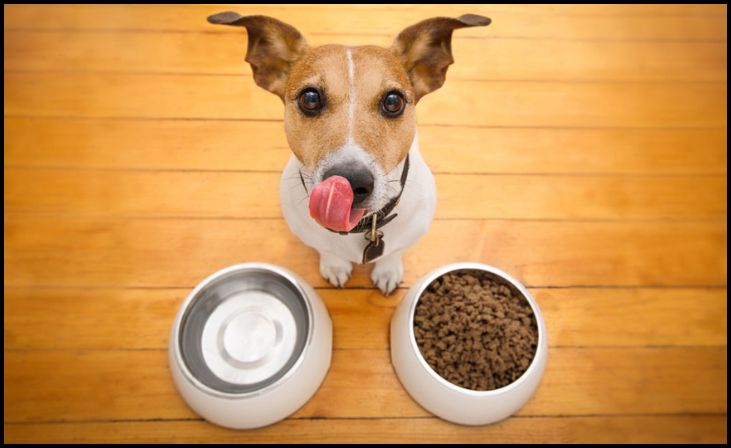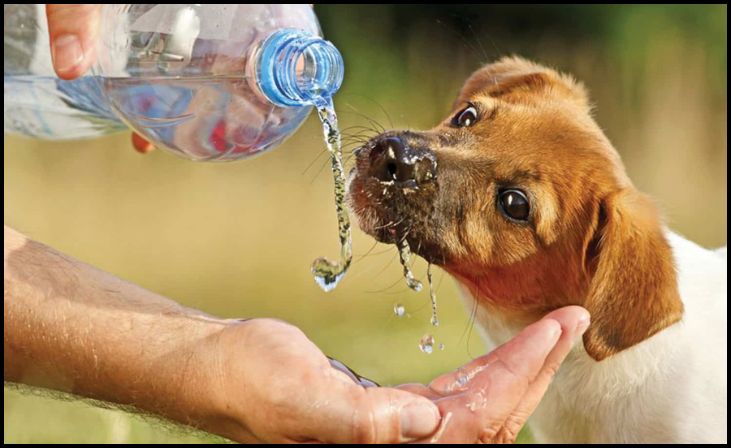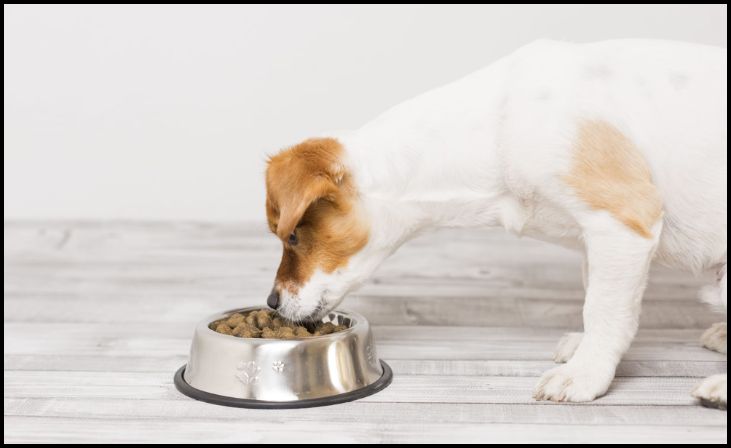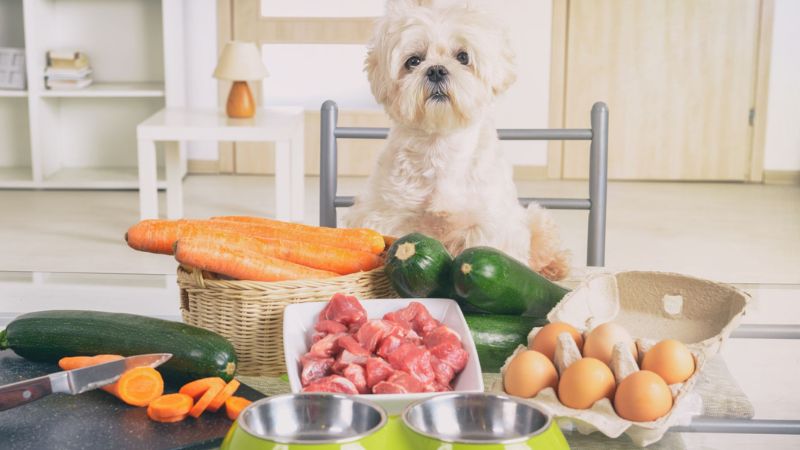Ensuring your dog receives proper nutrition is essential for their overall health and well-being. A well-balanced diet provides the necessary nutrients to support their growth, maintain a healthy weight, and prevent various health issues. By understanding the key principles of dog nutrition and implementing them into your pet’s daily routine, you can ensure they live a long, healthy life.
Dog Nutrition Tips For Health
1. Choose High-Quality Dog Food
Selecting high-quality dog food is paramount in providing optimal nutrition for your canine companion. Look for reputable brands that prioritize real meat, poultry, or fish as the main ingredients. These sources of protein are crucial for muscle development and overall health. Avoid foods that contain excessive fillers like corn, soy, or artificial additives, as they provide little nutritional value and can even contribute to digestive issues in some dogs.

2. Consider Your Dog’s Age and Size
Dogs have different dog nutritional needs depending on their age, size, breed, and activity level. Puppies, for instance, require diets higher in protein and calories to support their rapid growth and development. On the other hand, senior dogs may benefit from lower-calorie foods that are easier on their aging joints and metabolism. Consult with your veterinarian to determine the appropriate type and amount of food to meet your dog’s specific life stage requirements.
3. Monitor Portion Sizes
Maintaining appropriate portion sizes is crucial in preventing obesity and promoting overall health in dogs. Follow the feeding guidelines provided on the dog food packaging, which are typically based on your dog’s weight and activity level. Avoid overfeeding, as it can lead to weight gain and related health issues such as diabetes, joint problems, and cardiovascular issues. Adjust portion sizes as needed to ensure your dog maintains a healthy body condition.
4. Provide Fresh Water
Always ensure your dog has access to clean, fresh water throughout the day. Water is essential for digestion, nutrient absorption, temperature regulation, and overall hydration. Wash your dog’s water bowl daily to prevent bacteria buildup and encourage regular drinking habits. Make sure they drink enough water, especially when it’s hot outside or after doing a lot of hard exercise, to keep them from becoming dehydrated.

5. Incorporate Fruits and Vegetables
In addition to commercial dog Nutrition, consider incorporating fresh fruits and vegetables into your dog’s diet. These natural foods provide essential vitamins, minerals, antioxidants, and dietary fiber that support overall health and digestion. Suitable options include apples (seedless), carrots, green beans, and blueberries. However, avoid feeding your dog grapes, raisins, onions, garlic, and avocado, as they can be toxic to dogs.
6. Balance Macronutrients
A balanced diet for dogs consists of appropriate ratios of protein, fats, and carbohydrates. Protein is essential for muscle development and repair, while fats provide a concentrated source of energy and support skin and coat health. Carbohydrates, derived from sources like grains and vegetables, supply energy and essential nutrients. The ideal balance of these macronutrients varies based on your dog’s age, breed, health status, and activity level. Consult with your veterinarian to determine the optimal macronutrient ratios for your dog’s diet.
7. Be Mindful of Treats
As part of a healthy diet, treats should only be given occasionally. Use treats primarily as rewards during training sessions or to reinforce positive behavior. Opt for healthy treats made from natural ingredients, such as small pieces of lean meats or vegetables. Avoid overindulging your dog with treats, as excessive consumption can contribute to weight gain and dog nutritional imbalances. Consider the caloric content of treats when calculating your dog’s daily food intake.
Read Also: Top 10 Essential Supplies Every New Pet Owner Needs
8. Watch for Food Allergies
Some dogs may develop allergies or sensitivities to certain foods or ingredients. Common allergens include beef, chicken, dairy products, eggs, wheat, and soy. Symptoms of food allergies in dogs may include itching, gastrointestinal upset (vomiting or diarrhea), skin rashes, ear infections, or chronic licking and chewing. If you suspect your dog has a food allergy, consult with your veterinarian to determine the appropriate diagnostic tests and dietary changes needed to manage their condition effectively.

9. Regular Veterinary Check-ups
Regular veterinary visits are essential for monitoring your dog’s overall health, including their nutritional status. During these check-ups, your veterinarian can assess your dog’s body condition, weight, and dietary needs. They may recommend adjustments to your dog’s diet based on changes in their health status, activity level, or age-related requirements. Additionally, routine blood tests can provide valuable insights into your dog’s internal health and identify any underlying nutritional deficiencies or health concerns early on.
Conclusion
Providing proper nutrition is one of the most important aspects of responsible pet ownership. By implementing these nine tips into your dog’s daily routine, you can ensure they receive the essential nutrients needed to thrive at every stage of life. Remember, every dog is unique, so it’s important to tailor their diet and nutritional plan based on their individual needs, health status, and dietary preferences. For personalized guidance on your dog nutrition, consult with your veterinarian, who can provide expert advice and recommendations specific to your furry friend.
FAQs about Dog Nutrition
How can I tell if my dog is overweight or underweight?
You can assess your dog’s body condition by feeling their ribs and observing their overall body shape. In overweight dogs, you may have difficulty feeling the ribs beneath a layer of fat, and there may be noticeable fat deposits around the hips, base of the tail, and abdomen.
What should I do if my dog has a sensitive stomach or digestive issues?
If your dog experiences frequent digestive upset, such as vomiting, diarrhea, or gas, it may indicate a sensitive stomach or food intolerance. Switching to a limited-ingredient diet or a hypoallergenic formula can help identify and eliminate potential triggers. Gradually introduce new foods and monitor your dog’s response.
Can I give my dog human food leftovers as part of their diet?
While it may be tempting to share human food leftovers with your dog, not all human foods are safe for dogs to consume. Many foods contain ingredients that can be toxic or harmful to dogs, such as onions, garlic, chocolate, caffeine, grapes, and raisins. Additionally, feeding table scraps can contribute to weight gain and nutritional imbalances.



